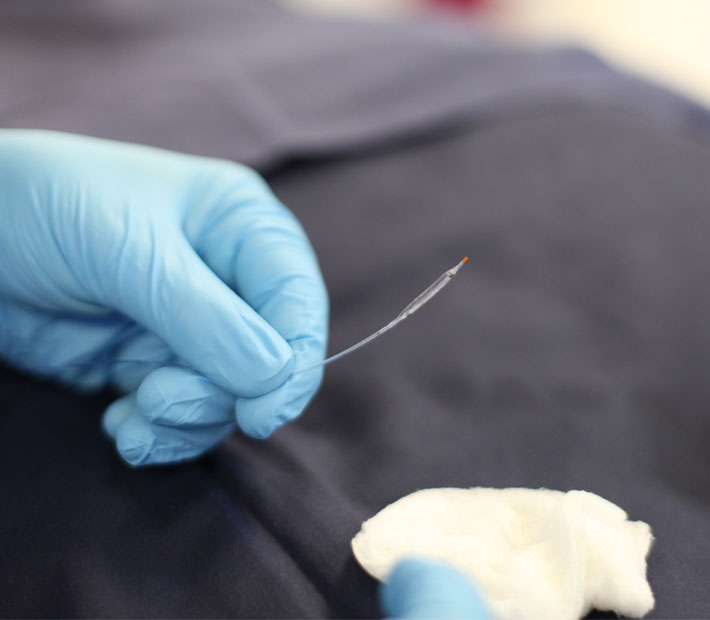IVUS & PRESSURE WIRE STUDY

Intravascular Ultrasound (IVUS)
This is performed as an extension of the coronary angiogram procedure. It comprises a specialized coronary catheter, with a miniature ultrasound-emitting transducer mounted on the tip, which is threaded over the coronary wire down the coronary artery and generates high resolution cross sectional images of the interior of the arteries and the different layers of the artery wall. The information allows your cardiologist to assess the amount, distribution and composition of the blockage within the artery. The result may also influence the need for further treatment, such as angioplasty (stent placement). After stenting a region of diseased artery, Intravascular Ultrasound (IVUS) can be used to confirm the stent is properly expanded and abutting the artery wall.
Pressure Wire Study
This is a functional, invasive test performed as an extension of the coronary angiogram procedure to assess the importance of blockages. Sometimes, it is difficult to accurately determine the degree of narrowing of the artery, especially if the blockage is of borderline significance (50-70% blockages). Mild or critically narrowed segments of the artery are much easier to appreciate. The pressure wire, which has a pressure sensor near the tip, is threaded down the coronary artery beyond the blockage. The artery is primed by administering nitrate medication, followed by an intravenous infusion or intracoronary bolus of intra-coronary adenosine. These medicines optimise blood flow within the artery. The pressure within the artery, beyond the narrowing, is compared with that in the aorta (main blood vessel). The difference between the two values is expressed as a ratio, called the fractional flow reserve.
If the ratio is >0.8 then the blockage is not significant and does not require treatment with an angioplasty (stenting).


